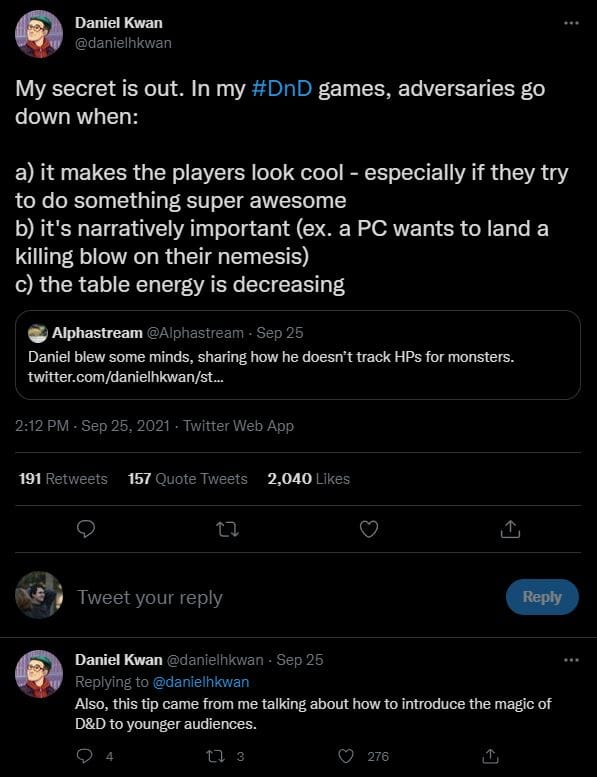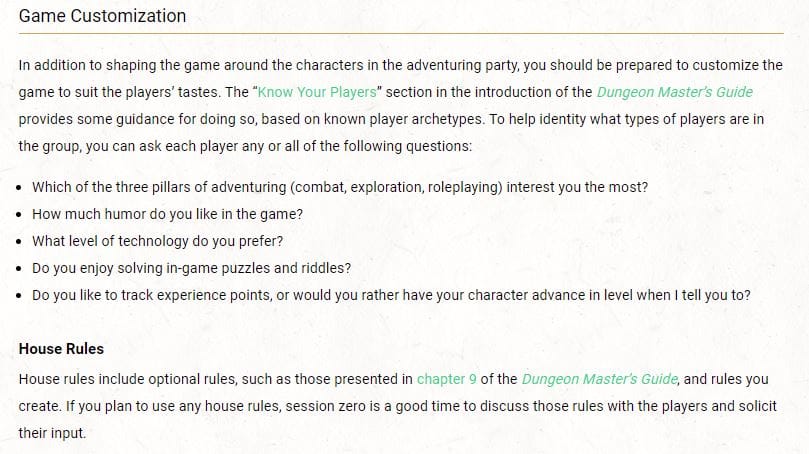Dungeons & Dragons is about to hit its 50th anniversary. Earlier than the email, MRI machine or even post-it notes Dungeons and Dragons and Table Top Role Playing Games have been available to play. Since then countless varieties of TTRPG have cropped up. Do you want to be undead in Vampire: The Masquerade, have all kinds of gadgets at your disposal in Cyberpunk, what about exploring the world of Avatar the Last Airbender, or even Amber Diceless set in the universe of the Chronicles of Amber. It seems like there's a bit of discourse about just what "counts" as playing a TTRPG like Dungeons & Dragons.
First of all, where did this begin? Last weekend as part of the D&D Celebration a panel was held called "My First Character - Bringing Young Players Into D&D" with a number of D&D personalities encompassing hosts, authors, players, and DMs. During this panel, Daniel Kwan, who you may know contributed to the Avatar Legends TTRP and authored The Book of Inner Alchemy from Candlekeep Mysteries, explained that when trying to get younger players into the game that he'll drop monsters when it makes the player look cool, it's important to the narrative of a character, or when the energy at the table is beginning to lull. As the internet is want to do certain parts of Kwan's approach were cherry-picked and held up to the insatiable scrutiny of the internet to very mixed results. It seems a lot of the initial context of how to get new/young players into the game was also lost so expect any examples to be in the context of "Is it still a TTRPG when you change so much?"

Those who believe that Kwan is in the wrong do bring up some valid criticisms of whether the struggle of the adventure feels less rewarding if you know that you're going to win in the end, if you're removing central elements of the game is it still a game, or even whether Kwan's whole approach makes the players rolling for attacks or damage pointless or a waste of time? One of the key elements of Dungeons & Dragons, and many other TTRPG is that the dice add such a level of chaos to the game. You might be the strongest barbarian around, but if you keep rolling natural 1s that's going to affect what you can do. It's not just in successes that TTRPG can have great character moments but also in their failures. The dice rolls can keep not only the players on their toes but also the DMs. By removing tracking health, and tracking the damage rolls against a creature in favor of character moments it's not impossible to say that that's an aspect of TTRPG that you're missing out on.
The other side of the argument is in the simple idea of, if you want to play D&D or any TTRPG a certain way, then you're well within your right to do so. There might be aspects that would be removed by playing the same way that Kwan does but if those were elements that could have potentially hindered the experience then it's worth sacrificing for the good of the group. There are already plenty of parties that see rules like encumbrance or needing spell components to cast as too much to additionally manage on top of wanting to experience the story. Why is removing a hard enemy HP that different from your character being able to fill their pockets with unlimited bread rolls? The sentiment or removing what doesn't work for you isn't just one that's expressed by the players either as it's been a core part of the D&D mentality for a while. The Dungeon Master's Guide itself explains the idea pretty concisely
The D&D rules help you and the other players have a good time, but the rules aren’t in charge.
It's as simple as that. Just as a DM will plan for as many possibilities as they can only to have the party likely miss a lot of them so does Wizards create all kinds of rules and regulations for parties to pick and choose which they prefer. Kwan's approach to D&D combat is an interesting and unique one, but it's his own. If you prefer to be in a game where the rules are stuck to hard and fast then it's just a matter of finding a DM and a party that's more in line with that view which is where the real question arises... How do YOU enjoy playing your TTRPGs?

As both a player and a DM I enjoy the rules and structure that D&D has provided across its many adventure and sourcebooks. Because of my enjoyment of knowing and understanding the rules a situation where enemy HP decrease and loss is somewhat arbitrary wouldn't be in my wheelhouse, but that doesn't give me a right to say Kwan is playing the game 'wrong.' The real understanding that anyone should take away from this discussion is what matters in your game is what is agreed upon between the DM and the players. Parties already know to check what tone of a game you're setting (especially important if playing an evil campaign) and whether you'll be playing with game rules like components or encumbrance but how you deal with combat can also be part of that discussion. This is the importance of Session 0, there might be all kinds of parties with interesting rules you've never even considered.
The biggest takeaway that I could hope anyone has from Kwan's approach to DMing isn't that there's a right or wrong way to do it, but that you should always try to find the way that best suits you. You can always be the best DM or best Player for your table.
Have a tip, or want to point out something we missed? Leave a Comment or e-mail us at tips@techraptor.net
.jpg?itok=ZLJxbSPT)











